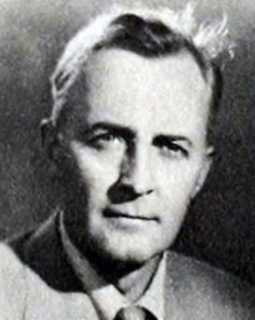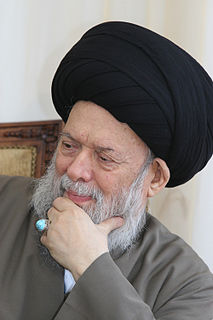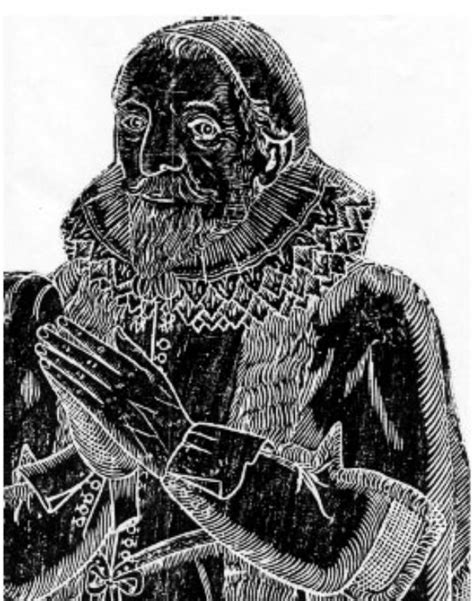A Quote by Philip Yancey
When Jesus came to earth, demons recognized him, the sick flocked to him, and sinners doused his feet and head with perfume. Meanwhile he offended pious Jews with their strict preconceptions of what God should be like. Their rejection makes me wonder, could religious types be doing just the reverse now? Could we be perpetuating an image of Jesus that fits our pious expectations but does not match the person portrayed so vividly in the Gospels?
Quote Topics
Related Quotes
These criminals represent us. One of them recognized Jesus for who he was and received him; Jesus promised that when he died he would be in heaven with him. The other man rejected Jesus and closed his heart. Unlike the first criminal, when he died he didn't go to heaven. He went to hell. In that sense, these two men on either side of Jesus are just like every person. We either embrace Christ as our Savior and spend eternity with him, or we reject him and say, 'I don't believe it. I'll have nothing to do with.' And these people spend eternity separated from him.
I am not religious, but I am a pious man... A religious man has a definite religion. He says "God is there" or "God is there," "God is there." "Your god is not my god, and that's all." But the pious man, he just looks out with awe, and says, "where is God?" And "well, I don't understand it and I would like to know what this creation really means." That is a pious man, who is really touched by the greatness of nature and of the creation.
The worst sinners, according to Jesus, are not the harlots and publicans, but the religious leaders with their insistence on proper dress and grooming, their careful observance of all the rules, their precious concern for status symbols, their strict legality, their pious patriotism... the haircut becomes the test of virtue in a world where Satan deceives and rules by appearances.
Having spent time around "sinners" and also around purported saints, I have a hunch why Jesus spent so much time with the former group: I think he preferred their company. Because the sinners were honest about themselves and had no pretense, Jesus could deal with them. In contrast, the saints put on airs, judged him, and sought to catch him in a moral trap. In the end it was the saints, not the sinners, who arrested Jesus.
The resurrection of Jesus was simply God's unwillingness to take our 'no' for an answer. He raised Jesus, not as an invitation to us to come to heaven when we die, but as a declaration that he himself has now established permanent, eternal residence here on earth. He is standing beside us, strengthening us in this life. The good news of the resurrection of Jesus is not that we shall die and go home to be with him, but that he has risen and comes home with us, bringing all his hungry, naked, thirsty, sick prisoner brothers with him.
If Jesus came as God, then why did God have to anoint Him? If Jesus - see God's already been anointed. If Jesus came as God, then why did God have to anoint Him? Jesus came as a man, that's why it was legal to anoint him. God doesn't need anointing, He is anointing. Jesus came as a man, and at age 30 God is now getting ready to demonstrate to us, and give us an example of what a man, with the anointing, can do.
Jesus never met a disease he could not cure, a birth defect he could not reverse, a demon he could not exorcise. But he did meet skeptics he could not convince and sinners he could not convert. Forgiveness of sins requires an act of will on the receiver's part, and some who heard Jesus' strongest words about grace and forgiveness turned away unrepentant.
Jesus came to reveal God to us. He is the defining word on God—on what the heart of God is truly like, on what God is up to in the world, and on what God is up to in your life. An intimate encounter with Jesus is the most transforming experience of human existence. To know him as he is, is to come home. To have his life, joy, love, and presence cannot be compared. A true knowledge of Jesus is our greatest need and our greatest happiness. To be mistaken about him is the saddest mistake of all.
Socrates dies with honor, surrounded by his disciples listening to the most tender words -the easiest death that one could wish to die. Jesus dies in pain, dishonor, mockery, the object of universal cursing - the most horrible death that one could fear. At the receipt of the cup of poison, Socrates blesses him who could not give it to him without tears; Jesus, while suffering the sharpest pains, prays for His most bitter enemies. If Socrates lived and died like a philosopher, Jesus lived and died like a god.
I think the best thing a person can do is to read through the Gospels in the Bible and really look at Jesus, because if a person does this, they will realize that the Jesus they learned about in Sunday school or the Jesus they hear jokes about or the skinny, Gandhi Jesus that exists in their imaginations isn't anything like the real Jesus at all.
To Whom does our God say, 'in our image' (Gen. 1:26), to whom if it is not to Him who is 'the brightness of His glory and the express image of His Person' (Heb. 1:3), 'the image of the invisible God' (Col. 1:15)? It is then to His living image, to Him Who has said 'I and My Father are one' (Jn. 10:30), 'He who has seen Me has seen the Father' (Jn. 14:9), that God says, 'Let us make man in our image'.

































